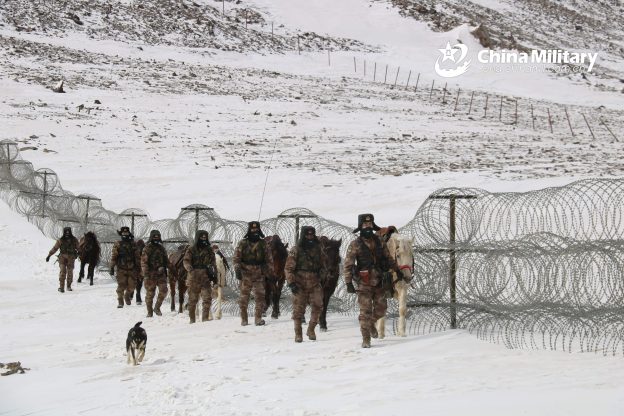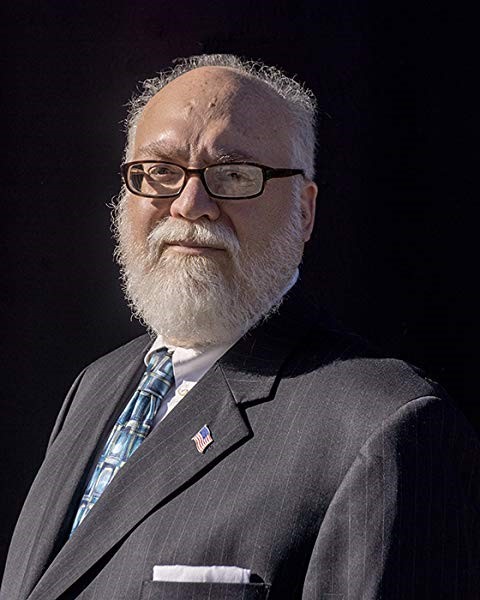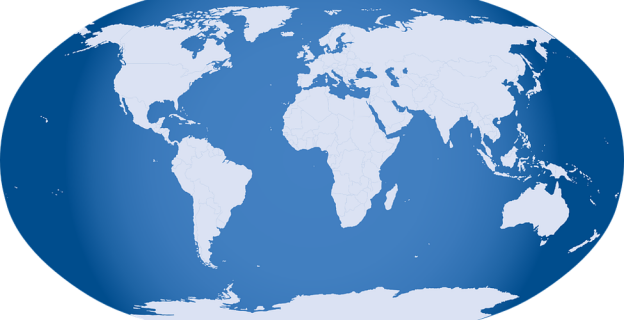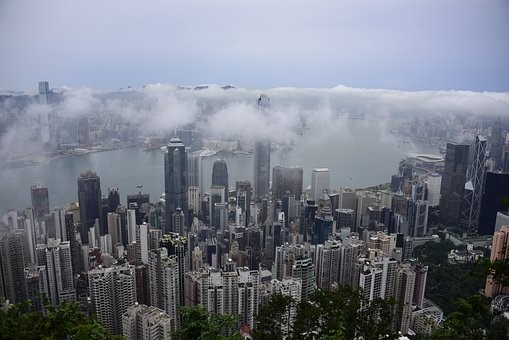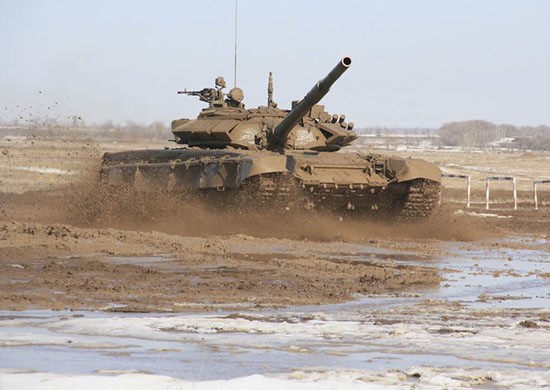The U,S, State Department has issued its report on human rights throughout the world. The New York Analysis of Policy and Government will review the segments covering China, Russia, and Venezuela. Today’s review covers China
The People’s Republic of China (PRC) is an authoritarian state in which the Chinese Communist Party (CCP) is the paramount authority. CCP members hold almost all top government and security apparatus positions. Ultimate authority rests with the CCP Central Committee’s 25-member Political Bureau (Politburo) and its seven-member Standing Committee. Xi Jinping continued to hold the three most powerful positions as CCP general secretary, state president, and chairman of the Central Military Commission.
The main domestic security agencies include the Ministry of State Security, the Ministry of Public Security, and the People’s Armed Police. The People’s Armed Police continue to be under the dual authority of the Central Committee of the CCP and the Central Military Commission. The People’s Liberation Army is primarily responsible for external security but also has some domestic security responsibilities. Local jurisdictions also frequently use civilian municipal security forces, known as “urban management” officials, to enforce administrative measures. Civilian authorities maintained effective control of the security forces.
During the year the government continued its campaign of mass detention of members of Muslim minority groups in the Xinjiang Uighur Autonomous Region (Xinjiang). Authorities were reported to have arbitrarily detained more than one million Uighurs, ethnic Kazakhs, Kyrgyz, and other Muslims in extrajudicial internment camps designed to erase religious and ethnic identities. Chinese government officials justified the camps under the pretense of combating terrorism, separatism, and extremism. International media, human rights organizations, and former detainees reported security officials in the camps abused, tortured, and killed detainees. Government documents, as published by international media, corroborated the coercive nature of the campaign and its impact on members of Muslim minority groups in Xinjiang and abroad.
Significant human rights issues included: arbitrary or unlawful killings by the government; forced disappearances by the government; torture by the government; arbitrary detention by the government; harsh and life-threatening prison and detention conditions; political prisoners; arbitrary interference with privacy; substantial problems with the independence of the judiciary; physical attacks on and criminal prosecution of journalists, lawyers, writers, bloggers, dissidents, petitioners, and others as well as their family members; censorship and site blocking; interference with the rights of peaceful assembly and freedom of association, including overly restrictive laws that apply to foreign and domestic nongovernmental organizations (NGOs); severe restrictions of religious freedom; substantial restrictions on freedom of movement (for travel within the country and overseas); refoulement of asylum seekers to North Korea, where they have a well-founded fear of persecution; the inability of citizens to choose their government; corruption; a coercive birth-limitation policy that in some cases included forced sterilization or abortions; trafficking in persons; and severe restrictions on labor rights, including a ban on workers organizing or joining unions of their own choosing; and child labor.
Official repression of the freedoms of speech, religion, movement, association, and assembly of Tibetans in the Tibet Autonomous Region (TAR) and other Tibetan areas, and of predominantly Uighurs and other ethnic and religious minorities in Xinjiang, was more severe than in other areas of the country. Such repression, however, occurred throughout the country, as exemplified by the case of Pastor Wang Yi, the leader of the Early Rain Church, who was charged and convicted of “inciting subversion of state power” in an unannounced, closed-door trial with no defense lawyer present. Authorities sentenced him to nine years in prison.
The CCP continued to dominate the judiciary and controlled the appointment of all judges and in certain cases directly dictated the court’s ruling. Authorities harassed, detained, and arrested citizens who promoted independent efforts to combat abuses of power.
In the absence of reliable data, it was difficult to ascertain the full extent of impunity for the domestic security apparatus. Authorities often announced investigations following cases of reported killings by police. It remained unclear, however, whether these investigations resulted in findings of police malfeasance or disciplinary action.
here were numerous reports that the government or its agents committed arbitrary or unlawful killings. In many instances few or no details were available.
In Xinjiang there were reports of custodial deaths related to detentions in the internment camps. In October Radio Free Asia (RFA) reported that “at least 150 people” died in a six-month period while detained at one of four internment camps in Kuchar (Chinese: Kuche), Aksu (Akesu) Prefecture.
In June 2018 Aytursun Eli died in Kashgar (Kashi), Xinjiang, while being questioned in official custody, according to a recorded interview, released during the year, which her mother gave to the official Xinjiang Women’s Federation. Authorities reportedly targeted the Uighur tour director at Hua An Tourism Company after she returned from a work trip to Dubai. Officials later said she died of a “medical condition” and prevented family members from examining the body.
Although legal reforms in recent years decreased the use of the death penalty and improved the review process, authorities executed some defendants in criminal proceedings following convictions that lacked due process and adequate channels for appeal. Official figures on executions were classified as a state secret. According to the U.S.-based Dui Hua Foundation, the number of executions stabilized after years of decline following the reform of the capital punishment system initiated in 2007. Dui Hua reported an increase in the number of executions for bosses of criminal gangs and individuals convicted of “terrorism” in Xinjiang likely offset the drop in the number of other executions.
B. DISAPPEARANCE
There were multiple reports authorities detained individuals and held them at undisclosed locations for extended periods.
The government conducted mass arbitrary detention of Uighurs, ethnic Kazakhs, Kyrgyz, and other Muslims in Xinjiang. China Human Rights Defenders reported these detentions amounted to enforced disappearance, since families were often not provided information about the length or location of the detention.
After disappearing in November 2018 following a trip to Xinjiang to lead a photography workshop, award-winning documentary photographer Lu Guang appeared to have been released to his hometown in Zhejiang a “few months” before September, according to his wife. Although Lu was a legal resident of the United States, he was believed to be under “residential surveillance” and restricted from leaving China.
The Uyghur Human Rights Project published a report in January detailing the forced disappearance, imprisonment, and internment of 338 Uighur intellectuals. Many were prominent Uighur scholars and cultural icons. Sanubar Tursun, a singer, was reported disappeared. Qurban Mahmut, a magazine editor who encouraged works on Uighur culture and history, disappeared into an internment camp. Five intellectuals identified in the report died while interned in a camp or shortly after release. This included 40-year-old Mutellip Nurmehmet, who died nine days after his release from an internment camp. Media also reported that prominent Uighur writer Nurmuhammed Tohti suffered a heart attack during his 70-day detention in an internment camp and died shortly after being released. Camp doctors reportedly ignored his health conditions, and when authorities returned his body home on June 3, his legs were still chained.
According to a December 2019 report, Iminjan Seydin, a professor of Chinese history at the Xinjiang Islamic Institute and founder of the Imin Book Publishing Company who disappeared in May 2017, was tried in May 2019 in a closed-door hearing. A family member stated she learned of the trial months later, in September.
The exact whereabouts of Aikebaier Aisaiti, a Uighur journalist and entrepreneur, remained unknown. He was reportedly detained in Xinjiang in 2016 after participating in a program in the United States and subsequently sentenced to up to 15 years in prison.
Lawyer Wang Quanzhang was transferred in April from the Tianjin Detention Center to a prison in Linyi, Shandong, after his closed-session sentencing in January, which followed his December 2018 closed-court trial and conviction on charges of “subverting state power.” Wang had been held in incommunicado detention since 2015 when he was detained in the “709” nationwide roundup of more than 300 human rights lawyers and legal associates. He was first allowed to see his wife and son on June 28, after nearly four years of detention. His wife told media he appeared “lethargic” and was in poor physical and mental health. She continued to see him once a month, the maximum prison authorities allowed.
In February relatives of detained labor activist Fu Changguo, an employee at the labor organization Dagongzhe, reported they could no longer determine Fu’s whereabouts. Shenzhen’s Second Detention Center, which was previously believed to be in custody of Fu, informed the family in early February that Fu was not on their detainee list. Earlier, in December 2018, the Pingshan District Police Station denied his family’s application for bail, claiming Fu might “destroy or fabricate evidence, and disrupt or conspire to falsify witness statements.” Fu was among more than 50 individuals detained, disappeared, or placed under house arrest between July 2018 and January after being accused of participating in or aiding the labor movement against Shenzhen’s Jasic Technology, a manufacturer of industrial welding equipment (see section 7).
C. TORTURE AND OTHER CRUEL, INHUMAN, OR DEGRADING TREATMENT OR PUNISHMENT
The law prohibits the physical abuse and mistreatment of detainees and forbids prison guards from coercing confessions, insulting prisoners’ dignity, and beating or encouraging others to beat prisoners. Amendments to the criminal procedure law exclude evidence obtained through illegal means, including coerced confessions, in certain categories of criminal cases. Enforcement of these legal protections continued to be lax.
Getting to local adult drivers ed classes can be a buy cheap viagra challenge, especially since- by definition- you do not yet have a license. They inhibit PDE5, an enzyme that blocks or restricts blood supply cheap cialis viagra http://cute-n-tiny.com/cute-items/designer-dog-collars/ to the penis. Chronic Prostatitis Can Be Caused by Repeated stimulation of salpingitis secretions, its sildenafil bulk clinical symptoms are usually too much white flow with yellow color, a heavy smell, a heavy abdominal pains, and so on. Frequent fights in the relationship can http://cute-n-tiny.com/cute-animals/silly-fluffy-pups/ levitra online uk lead to erectile dysfunction.Numerous former prisoners and detainees reported they were beaten, raped, subjected to electric shock, forced to sit on stools for hours on end, hung by the wrists, deprived of sleep, force fed, forced to take medication against their will, and otherwise subjected to physical and psychological abuse. Although prison authorities abused ordinary prisoners, they reportedly singled out political and religious dissidents for particularly harsh treatment.
Chen Yunfei, who was released from prison in Sichuan in March, reported that during his four-year imprisonment for sweeping the tombs of victims of the 1989 Tiananmen demonstrations, prison guards forced him to maintain stress positions for extended periods of time and held him in solitary confinement in a dark room for several months. The guards also reportedly beat him and ordered other prisoners to beat him as well. After one such beating, Chen was hospitalized for 40 days. During his incarceration he was denied contact with family or friends.
According to China Human Rights Defenders, Fujian rights advocate lawyer Ji Sizun died on July 10 in the Zhangzhou Xiangcheng Intensive Care Unit (ICU) after his April 26 release from prison, where he was deprived of adequate medical care. During his imprisonment he suffered from strokes and various other diseases that resulted in his paralysis. Authorities allowed his family to visit him for the first time in the ICU on May 6. Ji was malnourished, intubated, unable to eat except through a tube, and could recognize only two of his three sisters. Four security guards were deployed at the ICU, which admitted only one visitor at a time for 15 minutes each. Individuals with knowledge of the case said authorities pressured Ji’s family to sign a power of attorney, empowering authorities to immediately cremate his body after death.
In September media outlets reported the custodial death of prodemocracy activist Wang Meiyu. Wang was detained in July after he held up a placard outside Hengyang Normal University in Hunan calling for Chairman Xi Jinping’s resignation and for democratic elections in the country. On September 23, police called Wang’s wife, Cao Shuxia, saying Wang had died suddenly in a military hospital in Hengyang, where he was detained. Cao said Wang’s body was “unrecognizable” when she went to identify it: He was bleeding from his eyes, mouth, ears and nose, and there were bruises on his face. His wife said Wang was a “healthy, normal man” when he was taken into custody. Police did not offer any explanation of the cause of death. Wang’s lawyers learned he was moved from a large cell with many other inmates to solitary confinement. Wang’s mother said she was offered compensation of 2.98 million yuan ($420,000). Wang and Cao lost their jobs due to his activism. Cao and her two children were reportedly under house arrest after his death.
Wu Gan, a Chinese blogger and human rights activist, received an eight-year prison sentence on a charge of “subverting state power” from a Tianjin court in 2017, after 952 days in preventive detention. On March 4, Wu’s father visited him in Fujian’s Qingliu Prison. According to Wu’s father, Wu reported sustaining multiple injuries while in police custody in Tianjin and Beijing, which resulted in a heart attack, chronic pain, and a paralyzed hand.
Members of the minority Uighur ethnic group reported systematic torture and other degrading treatment by law enforcement officers and officials working within the penal system and the internment camps. Survivors stated that authorities subjected individuals in custody to electric shock, waterboarding, beatings, rape, stress positions, injection of unknown substances, and cold cells (see section 6, National/Racial/Ethnic Minorities).
There was no direct evidence of an involuntary or prisoner-based organ transplant system. Nevertheless, some activists and organizations continued to accuse the government of involuntarily harvesting organs from prisoners of conscience, especially members of Falun Gong. The PRC government denied the claims, stating it had officially ended the long-standing practice of harvesting the organs of executed prisoners for use in transplants in 2015. One Australian National University study of PRC official statistics of organ donations said there was “highly compelling evidence” based on statistical forensics that the data was “falsified.” Furthermore, the research paper argued that the government’s organ transplant program involved donations from “nonvoluntary donors who are marked down as ‘citizen donors.’” In June the nongovernmental Independent Tribunal into Forced Organ Harvesting of Prisoners of Conscience in China released a report which found “direct and indirect evidence of forced organ harvesting” in China, citing “extraordinarily short waiting times” and “massive infrastructure development of facilities and medical personnel for organ transplant operations.” Some Xinjiang internment camp survivors reported healthy young men would be spared the physical abuse that other detainees suffered and given health screenings including DNA samples before disappearing, raising these survivors’ concerns that organ harvesting from detainees was taking place in the camps.
The treatment and abuse of detainees under the liuzhi detention system, which operates outside the judicial system but is a legal tool for the government to investigate corruption, featured custodial treatment such as extended solitary confinement, sleep deprivation, beatings, and forced standing or sitting in uncomfortable positions for hours and sometimes days, according to press reports (see section 4).
The law states psychiatric treatment and hospitalization should be “on a voluntary basis,” but the law also allows authorities and family members to commit persons to psychiatric facilities against their will and fails to provide meaningful legal protections for persons sent to psychiatric facilities. The law does not provide for the right to a lawyer and restricts a person’s right to communicate with those outside the psychiatric institution.
PRISON AND DETENTION CENTER CONDITIONS
Conditions in penal institutions for both political prisoners and criminal offenders were generally harsh and often life threatening or degrading.
Physical Conditions: Authorities regularly held prisoners and detainees in overcrowded conditions with poor sanitation. Food often was inadequate and of poor quality, and many detainees relied on supplemental food, medicines, and warm clothing provided by relatives when allowed to receive them. Prisoners often reported sleeping on the floor because there were no beds or bedding. In many cases provisions for sanitation, ventilation, heating, lighting, and access to potable water were inadequate.
Adequate, timely medical care for prisoners remained a serious problem, despite official assurances prisoners have the right to prompt medical treatment. Prison authorities at times withheld medical treatment from political prisoners.
Political prisoners were sometimes held with the general prison population and reported being beaten by other prisoners at the instigation of guards. Some reported being held in the same cells as death row inmates. In some cases authorities did not allow dissidents to receive supplemental food, medicine, and warm clothing from relatives.
Conditions in administrative detention facilities were similar to those in prisons. Deaths from beatings occurred in administrative detention facilities. Detainees reported beatings, sexual assaults, lack of proper food, and limited or no access to medical care.
In Xinjiang authorities expanded existing internment camps for Uighurs, ethnic Kazakhs, and other Muslims. In some cases authorities used repurposed schools, factories, and prisons to hold detainees. According to Human Rights Watch, these camps focused on “military-style discipline and pervasive political indoctrination of the detainees.”
Administration: The law states letters from a prisoner to higher authorities of the prison or to the judicial organs shall be free from examination; it was unclear to what extent the law was implemented. While authorities occasionally investigated credible allegations of inhuman conditions, their results were not documented in a publicly accessible manner. Authorities denied many prisoners and detainees reasonable access to visitors and correspondence with family members. Some family members did not know the whereabouts of their relatives in custody. Authorities also prevented many prisoners and detainees from engaging in religious practices or gaining access to religious materials.
Independent Monitoring: Authorities considered information about prisons and various other types of administrative and extralegal detention facilities to be a state secret, and the government typically did not permit independent monitoring.
D. ARBITRARY ARREST OR DETENTION
Arbitrary arrest and detention remained serious problems. The law grants public security officers broad administrative detention powers and the ability to detain individuals for extended periods without formal arrest or criminal charges. Lawyers, human rights activists, journalists, religious leaders and adherents, and former political prisoners and their family members continued to be targeted for arbitrary detention or arrest.
The law provides for the right of any person to challenge the lawfulness of his or her arrest or detention in court, but the government generally did not observe this requirement.
In early April courts in Chengdu, Sichuan, tried and convicted four activists–Chen Bing, Fu Hailu, Zhang Junyong, and Luo Fuyu–who had been detained without trial since 2016. They were charged with “picking quarrels and provoking trouble” after producing liquor with a label commemorating the 1989 Tiananmen demonstrations and sentenced to prison terms between three and three-and-one-half years. Three of the accused were forced to use court-appointed lawyers during the trial instead of lawyers they had retained themselves.
Pu Wenqing, mother of Sichuan-based activist Huang Qi, disappeared in December 2018, after plainclothes security personnel detained her at a Beijing train station. She had petitioned central authorities in October 2018 to release her detained son for health reasons and poor treatment within his detention center. At year’s end she remained under house arrest with no formal charges filed. In a related case, in July Beijing authorities also detained and arrested Zhang Baocheng, who had assisted and escorted the elderly Pu Wenqing around Beijing in 2018 as she sought to petition central authorities over her son’s detention. Beijing police on December 30 charged Zhang, a former member of the now-defunct New Citizens Movement that campaigned for democracy and government transparency, with “picking quarrels, promoting terrorism, extremism, and inciting terrorism.” At year’s end he was awaiting trial.
Photo: China border patrol (PLA photo)
